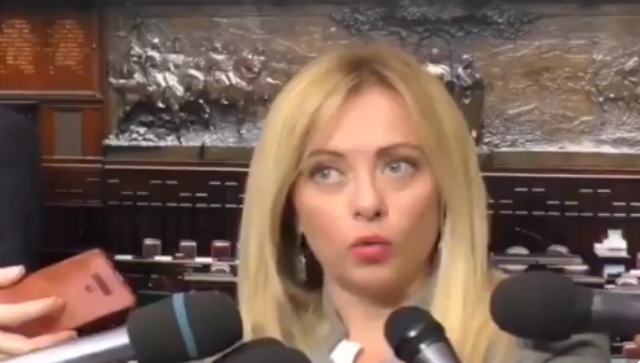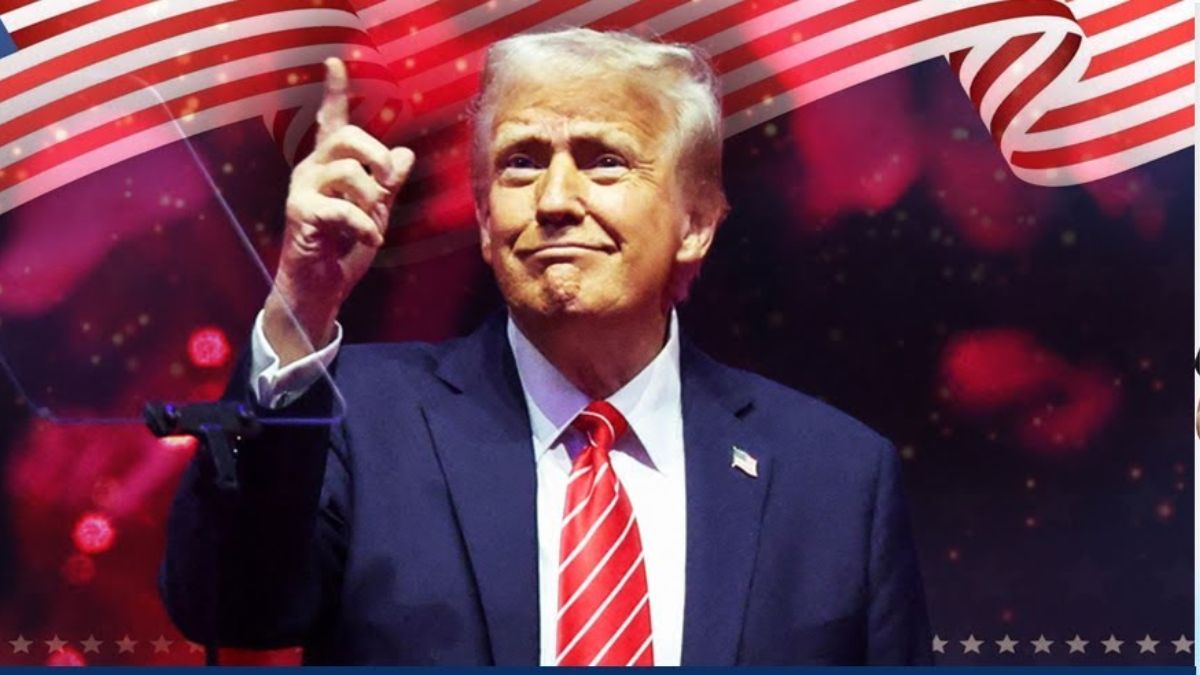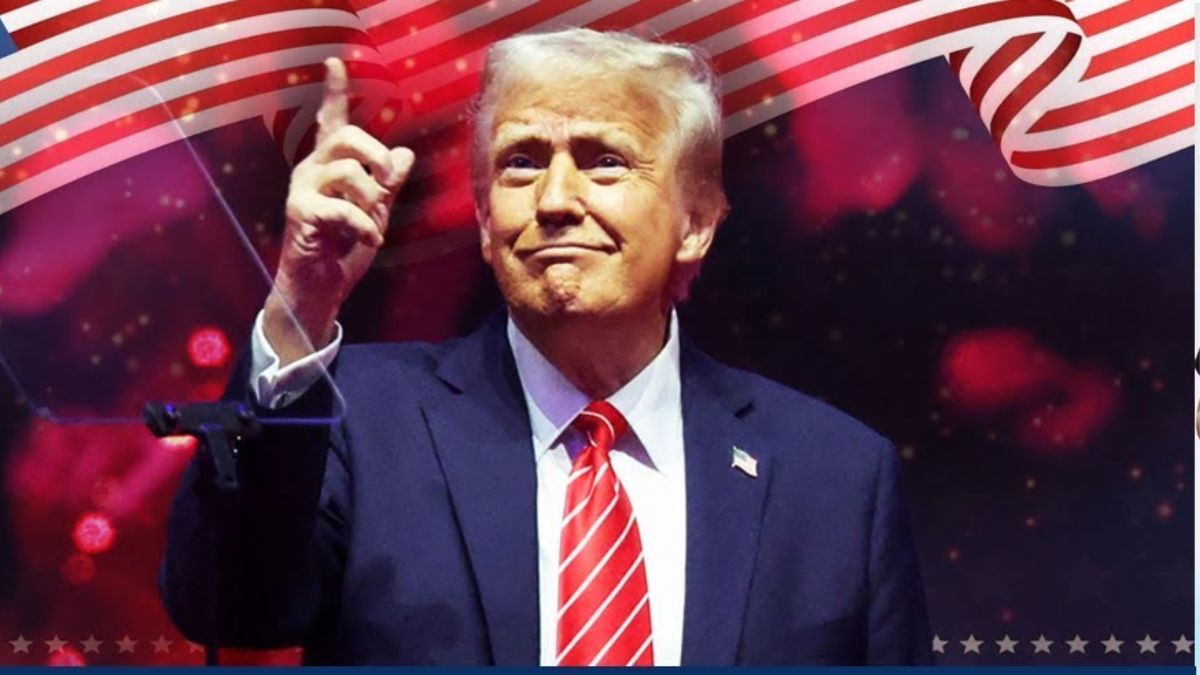Italian prime minister Giorgia Meloni has claimed that Islam and Europe have a ‘compatibility problem.’
“I believe there is a problem of compatibility between Islamic culture or a certain interpretation of Islamic culture and the rights and values of our civilisation,” Meloni said as per NDTV.
“It does not escape my mind that most of the Islamic cultural centres in Italy are financed by Saudi Arabia.”
“Sharia means lapidation for adultery and the death penalty for apostasy and homosexuality. I believe that these should be raised, which does not mean generalising on Islam. It means raising the problem that there is a process of Islamisation in Europe that is very distant from the values of our civilisation,” she added.
🚨Watch: #GiorgiaMeloni: “I believe… there is a problem of compatibility between Islamic culture and the values and rights of our civilization… Will not allow Sharia law to be implemented in taly…. values of our civilization are different! pic.twitter.com/VGWNix7936
— Geopolitical Kid (@Geopoliticalkid) December 18, 2023
Meloni made the remarks at a party organised by her right-wing Brothers of Italy party.
Billionaire Elon Musk and Rishi Sunak were also in attendance.
Meloni isn’t alone. Other European leaders have also echoed similar sentiments.
Let’s take a closer look:
Italy – Giorgia Meloni
Impact Shorts
More ShortsThe first woman premier of Italy, who took power in 2022, has long espoused such rhetoric.
Meloni in 2015 came out against the political candidacy of a Muslim Italian.
“In all sincerity, I do not think it is a good idea to nominate for the leadership of Sicily a personality who has decided to convert to Islam […] I believe that in these years Italy and Europe must claim their Greek, Roman and Christian origins in front of those who would like to wipe them out,” she said.
She also introduced a bill in 2016 “for the introduction of the crime of Islamic fundamentalism.”
“We need to start from the ‘bad teachers’ who theorize fundamentalism, from Salafism and Wahhabism which have become the majority in Qatar and Saudi Arabia […] it has recently emerged that around 20 per cent of Hillary Clinton’s presidential campaign funds come from Saudi Arabia and that Qatar and Kuwait also have contributed generously to the cause.”
After the Berlin attack in Christmas 2016, she called for no Muslim immigrants to be allowed to enter Italy.
“The uncontrolled reception policy brings insecurity, crime, degradation and helps Islamic terrorists.”
She also posted this comment on her Facebook page in April 2019: “If Muslims think of bringing holy war into our house, it is time to take even drastic measures: all that remains is to block all forms of Islamic immigration until they clear up their ideas. We intend to defend our classical and Christian roots from the process of Islamization of Europe, do-gooders and sultans of half the world need to make a reason.”
The Bridge Initiative of Georgetown University quoted Dr Alain Gabon, associate professor of French Studies at Virginia Wesleyan University, as calling her victory a sign of “the rise of a global anti-Muslim alliance.”
Īt’s not limited to rhetoric either.
As per Middle East Eye, Meloni’s party after coming to power proposed a bill to stop garages and warehouses from being used as mosques.
Tommaso Foti, the force behind this bill in Italian Chamber of Deputies, has said the bill would halt the Islamisation of Italy.
Netherlands - Geert Wilders
Wilders’ Freedom party (PVV) in November pulled off a stunning victory in the Netherlands.
As per The Guardian, Wilders says his anti-Islamic ideas were formed after the murder of filmmaker Theo van Gogh in 2004 and the time he spent at an Israeli kibbutz.
As per BBC, Wilders previously vowed to ban mosques and Islam schools.
However, the Dutch Donald Trump pulled back from those policies in the run-up to the polls – saying there were more important issues.
The man whose campaign called for “no Islamic schools, Qurans and mosques” was refused entry by the British government.
The UK government claimed Wilders was a a threat to “community harmony and therefore public security.”
Wilders had been invited to Britain by a member of Parliament’s upper house, the House of Lords, to show his 15-minute film “Fitna,” which criticises the Quran as a “fascist book.”
The film sparked violent protests around the Muslim world in 2008 for linking Quranic verses with footage of terrorist attacks.
“The PVV can no longer be ignored,” Wilders vowed in the aftermath of his victory. “We will govern.”
As per BBC, Wilders pounced on unhappiness with the previous regime over asylum-seeking.
Political scientist Martin Rosema from the University of Twente told the outlet the asylum issue plus the government not ruling out working with Wilders helped.
“We know, also from international precedent, that radical right-wing parties fare worse when they’re excluded,” Rosema said.
The Guardian quoted Hein de Haas, a sociologist at the University of Amsterdam, as saying that the leading party’s focus on immigration had helped Wilders.
“The leading VVD party had the cabinet fall over asylum and centred the entire campaign on immigration,” Haas wrote on X. “As JM Le Pen already said, people vote for the original, not the copy.”
France – Marine Le Pen and Eric Zemmour
As per Middle East Eye, Marine Le Pen and Eric Zemmour are two right-wing candidates who have urged for an “Islamist separatism” law to fight “political Islam”.
Le Pen, the runner-up to Emmanul Macron in 2017 and 2022 presidential polls, has long espoused anti-Muslim views.
She had vowed to ban the Muslim headscarf in public if she won the election.
As per Politico, Le Pen has for years slammed ‘mass migration’ and ‘fundamentalist Islam’.
Le Pen had hailed Wilders’ election performance – saying it showed people in Europe were ready to defend national identities.
“Congratulations to @geertwilderspvv and the PVV for their spectacular performance in the legislative elections which confirms the growing attachment to the defence of national identities,” Le Pen, who leads the Rassemblement National party, posted on X.
“It is because there are people who refuse to see the national torch extinguished that the hope for change remains alive in Europe,” she said.
Le Pen’s National Rally (Rassemblement National, RN) recently topped an IFOP poll for next year’s European elections, comfortably ahead of President Emmanuel Macron’s Renaissance.
Zemmour, meanwhile, is a former TV pundit with multiple hate-speech convictions, who has called on French Muslims to ‘renounce the practice of Islam’.
Zemmour in 2016 claimed “those who wage jihads” were seen by all Muslims as “good Muslims.”
He said France was witnessing “an invasion” with “countless neighborhoods … where many young women are veiled,” and said that French Muslims should “be given a choice between Islam and France.”
“So, if they’re French … they have to let go of what their religion is.”
He has backed the ‘“Great replacement” theory –the false claim that the native populations of France and other Western countries are being overrun by non-white immigrants — notably Muslims — who are allegedly supplanting, and one day will erase, Christian civilization and its values.
Jean-Yves Camus, a French expert, said “Every day when I go to work, I say, ‘Hey, this is France.’ “When Zemmour goes out from his flat … he says, ‘Wow, this is not France anymore.’”
Politico quoted a Renew Member of European Parliament, as saying that nationalist parties are attempting to make the fight about discrimination a “a civilizational issue.”
“If they succeed, we have a real problem, we are headed towards a civil war,” he added.
Milan Nič, a researcher with the German Council on Foreign Relations, told Politico these movements are changing their strategy.
“If they are confident that they will not lose their core vote, they move to the center,” to gain “a few extra percentage points,” Nič said.
“It’s the perfect period to make a breakthrough, the populist movements are rising in other countries, and in the US with Donald Trump … there’s the sense that something is happening.”
With inputs from agencies


)

)
)
)
)
)
)
)
)



